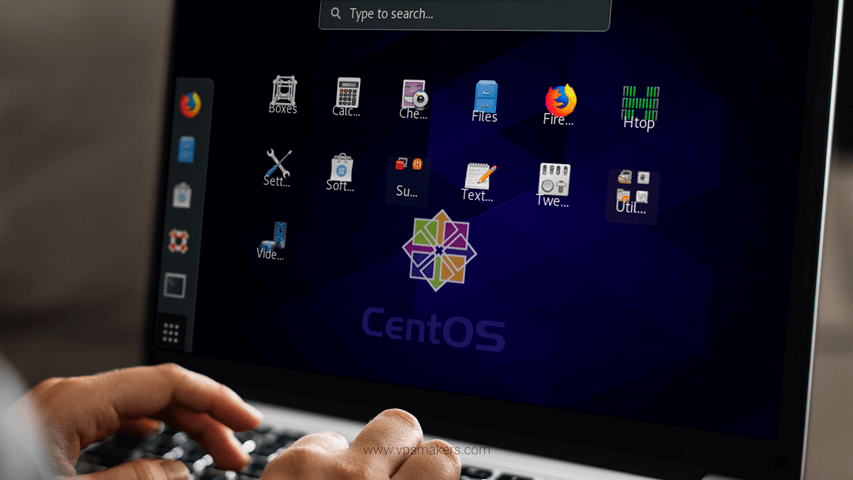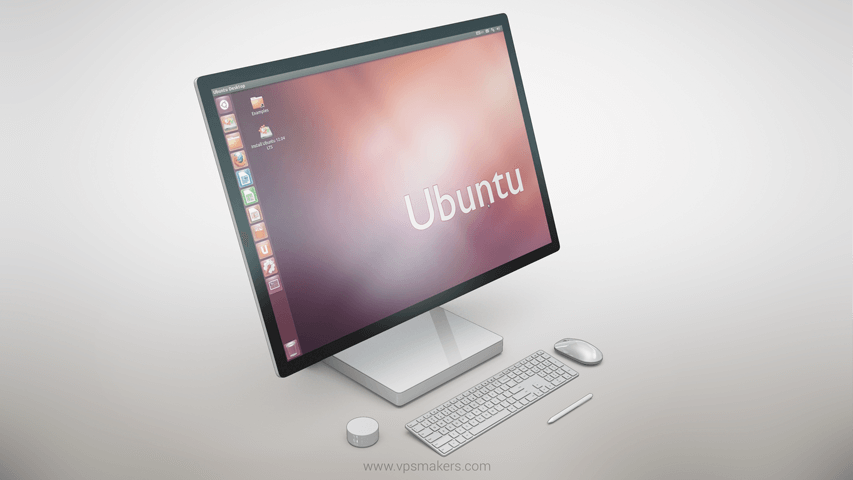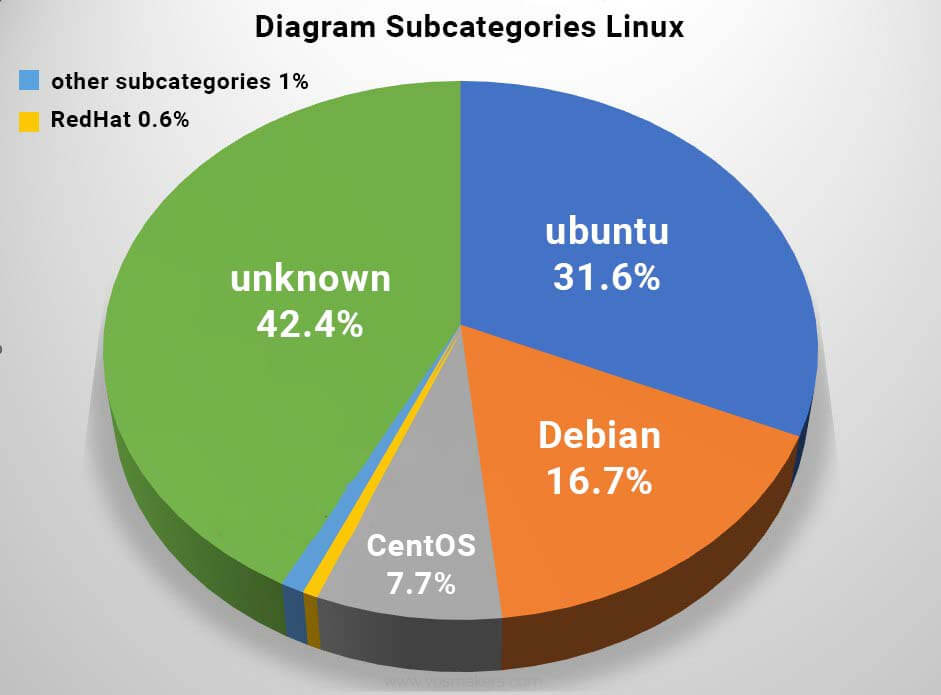CentOS vs Ubuntu: Choosing the Ideal Operating System for Web Servers
Web server management primarily involves making the conscious choice of an appropriate high-performance operating system for your business needs.
There are many options for Linux distributions, but the most famous ones are CentOS and Ubuntu. Both have stability, security, and high performance, and each has its own strengths and weaknesses.
This article provides a brief description of these two popular distributors. We have stated the strengths and weaknesses of each so that you can make a suitable and efficient choice for hosting your web server when purchasing a Linux VPS server.
What is Centos based on?
CentOS is an enterprise operating system based on the Red Hat version of Linux released in 2004. This operating system is mostly used in IT companies. According to the open-source version of Red Hat Linux, the Centos operating system can also be customized, which can be considered the most important advantage of Centos over Ubuntu. CentOS is very secure, stable and customizable.
The CentOS operating system is developed by an active group of Linux kernel developers, who in turn are supported by system administrators, computer network administrators, and IT administrators.

What is special about CentOS?
- It is based on the Linux framework
- It is very safe and less vulnerable to cyber threats
- In terms of system management, it is very manageable
What are the disadvantages of CentOS?
- Not user friendly
- It is less compatible with gaming and entertainment websites
- It doesn’t offer much support for creating drives and managing hard disk space
- In terms of technical support, it is at a lower level than Ubuntu
What is Ubuntu operating system?
This operating system is based on the Debian architecture and was first released by Canonical Ltd in 2004. It is a free operating system that supports more than 55 languages. Ubuntu is highly secure and has the ability to encrypt the entire hard drive as well as directories. Ubuntu is released in different versions including desktop version, server version and cloud version.
Ubuntu is an open-source operating system and is constantly updated to fix bugs.
This operating system includes a rich set of software packages to meet the needs of a project. Ubuntu is actually known for running web servers, in other words, it is used as another version of Linux, and this operating system is also used to run large projects.

What are the benefits of Ubuntu?
- It is open-source and free
- It has many pre-installed software that provide a better experience to users
- Ability to manage hard disk and drive space according to the user’s taste
- Ubuntu supports hard drives and external storage such as USB
- From the user’s point of view, Ubuntu has a great support team and lots of tutorials
What are the disadvantages of Ubuntu?
- Hardware bugs sometimes make it unstable
- It does not have wide hardware support and this issue sometimes makes users hesitate to use the Ubuntu
- Although its security is good, it is more exposed to internet threats due to successive updates
- New computers usually do not have Ubuntu pre-installed on them and must be installed separately
What is difference between CentOS and Ubuntu?
CentOS is derived from the enterprise version of the Red Hat Linux operating system, but Ubuntu is based on the Debian architecture.
| The basis of comparison | CentOS | Ubuntu |
|---|---|---|
| Definition | CentOS is based on Linux and released with the goal of creating a group-oriented database with respect to its upstream source | Ubuntu is an open source version based on the Debian architecture. Ubuntu is a popular operating system for cloud networks |
| Architecture | The CentOS architecture is actually based on the reference code of the Red hat version to implement a central design that is similar to the Red hat version of Linux. Also, Sentos is free | Ubuntu packages are originally created based on the Debian format, and these packages form the main framework of the Ubuntu architecture among continuous updates |
| Support | CentOS provides users with a significant amount of community support, although the amount is less than what Ubuntu supports | From the point of view of support, Ubuntu Server provides extensive support for cloud infrastructure as well as users, so it is superior to CentOS in this respect |
| Learning | CentOS is basically based on Red Hat Linux. Due to the small size of the Centos community, as well as limited documentation, Centos is more difficult to learn than Ubuntu | Due to Ubuntu's considerable community support, many tutorials and books are available on its market, so in terms of education, Ubuntu has the upper hand over CentOS. |
| Security | Considering that CentOS is based on the Linux framework, it has more security and uses 3 layers of security. Also, CentOS is less exposed to Internet threats | Although the security plugins in Ubuntu also run well, but sometimes it is more exposed to web threats due to frequent updates. Sometimes you have to downgrade to a lower version because of a bugs in the new update |
On Ubuntu, DEB packages can be downloaded using the apt-get package manager, but on CentOS, you need to use the yum command to download and install RPM packages.
CentOS seems to be more stable than Ubuntu and that’s because CentOS gets updated less often. But this can also be considered a weakness of CentOS because when certain software needs to be updated, it has to be updated manually.
In this section, you can see the diagram of Linux sub-branches:

source: https://w3techs.com/
When it comes to education, online communities, and online books, Ubuntu has the upper hand. Finding solutions to problems in Ubuntu is much easier than in CentOS.
Ubuntu is easier and less complicated to use for beginners, but learning CentOS is not easy.
Ubuntu has huge resources which is the reason for the popularity of Ubuntu and online communities, but CentOS has limited resources. Setting up a CentOS desktop computer takes a long time.
Ubuntu always has new and updated packages, while CentOS has no new ones and has used old ones for years.
Conclusion:
According to the information and description of the features of both versions, it can be said that CentOS and Ubuntu both have their positive and negative points. Depending on the type of project, duration, and user needs, each of them can be selected and used as a web server. Therefore, the final decision to choose the most suitable operating system is up to the users themselves. I hope this article is useful for you.
